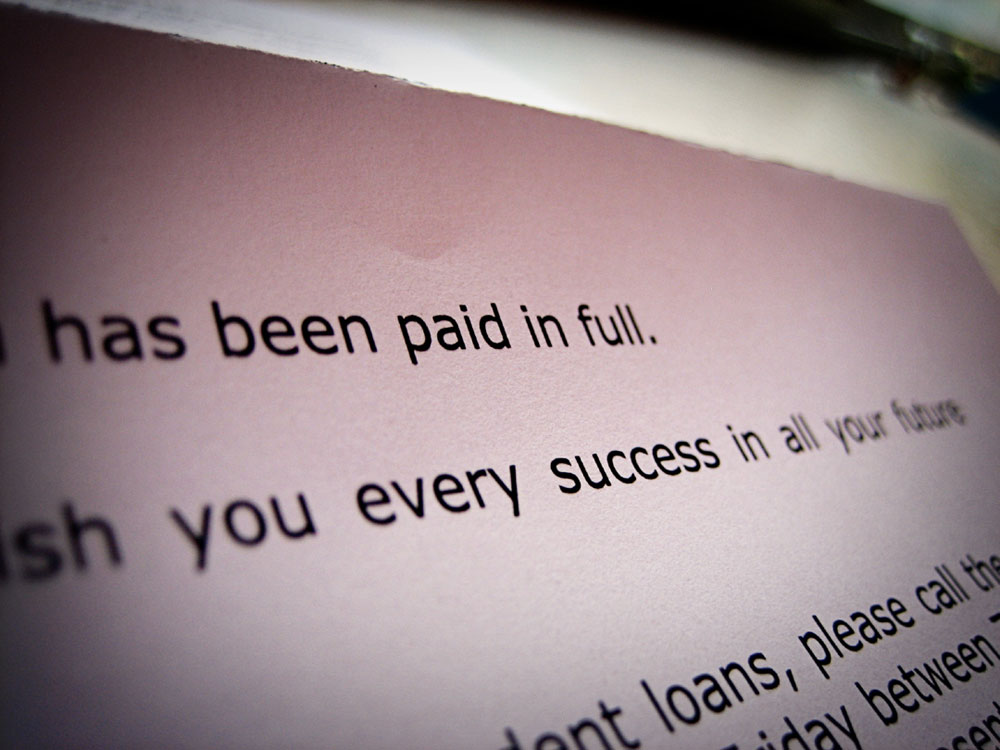
July 11, 2019; NPR
For years, we have reported on the problems with the Public Service Loan Forgiveness program (PSLF), which cancels the balance of a student loan for public service workers, teachers, and nonprofit employees after ten years of timely payments. A new 111-page lawsuit was filed on Thursday, charging that the way the program operates does not follow the US Constitution.
One of the largest teachers’ unions in the United States, the American Federation of Teachers, which is part of the AFL-CIO, filed the suit along with eight individuals from eight different states. The defendants are the Department of Education and Secretary Elisabeth “Betsy” DeVos.
With five counts that repeat the phrase “arbitrary and capricious,” the suit alleges that the PSLF program violates federal law, and even violates due process—concerning servicer misconduct—pursuant to the fifth amendment to the Constitution.
The suit is asking for a fair appeals process for individuals who have been denied the forgiveness of their loans. The plaintiffs are also requesting that the program be repaired to meet legal standards.
Individuals with student loans have eight possible procedures to design their repayment plan for the government federal student loan program, but those one million people in the public service jobs and for employees in nonprofits who have filed for PSLF can choose among only four of those. One of the other plans actually says, “generally not a qualifying repayment plan for PSLF,” so the borrower has to bet on the word “generally.”
A plaintiff in the suit, Debbie Baker, is a teacher in Tulsa, Oklahoma. For years, she called the loan servicer regularly and was assured that everything was fine: “I said, ‘I’m qualifying for public service loan forgiveness,’ and they said, ‘OK, great,’” she says.
Everything was not fine; during ten years of conscientiously making loan payments on time, she was not given correct information. She discovered she was not in one of the four acceptable loan repayment types, and her debt of $76,000 was not forgiven. She says she didn’t know whether to “cry, throw up, get mad.” Baker says, “I honestly did not think the federal government would do this to someone.”
The lawsuit contends that the Department of Education “knows of—but completely disregards—repeated misrepresentations made by [student loan] servicers to borrowers who are attempting to qualify…resulting in unwarranted denials of loan forgiveness.”
Sign up for our free newsletters
Subscribe to NPQ's newsletters to have our top stories delivered directly to your inbox.
By signing up, you agree to our privacy policy and terms of use, and to receive messages from NPQ and our partners.
“The promise is broken, virtually all the time,” says Randi Weingarten, the president of the American Federation of Teachers. “This is a debacle.” Only about one percent of those who filed for forgiveness after ten years of prompt payments get approved. Weingarten says the program is hurting those it was created to help.
“It is so broken, it is so unfair that it violates our basic United States Constitution requirement of due process,” she says.
Christopher Peterson, formerly of the Consumer Financial Protection Bureau and a law professor at the University of Utah, says, “The Department of Education just cannot seem to get this right. They keep making mistakes and are not appropriately administering this program that Congress has created.”
Investigations have found that misinformation and misdirection is rampant among loan servicers. Adding insult to injury, the complaint also alleges that even when a borrower is in the correct repayment plan, loan servicers are making mistakes in keeping track of the count of qualifying payments. An annual letter that states the borrower’s employer is approved will state that a letter with the amount of qualifying payments is on the way. Months later, it may not have been sent, and past annual letters are not necessarily retrievable. It seems to be a simple matter; there should be an app for that.
Another plaintiff, a Brainerd, Minnesota high school math teacher named Janelle Menzel, made career decisions based on the PSLF program. Her math degree opens many doors, but she chose teaching because she loved it and her loans would be forgiven. She too was told after ten years that she was in the wrong payment plan. It would have been an easy fix any time in the past ten years.
She remembers after contacting her loan servicer repeatedly, trying to find a way to appeal, a call center worker told her, “Look, you just need to give up.”
“And I remember sitting at the table watching my kids running around and playing and just thinking, man, I am stuck with this now,” Menzel says. Thoughts of “the freedom that would come with being released of the student loan debt kind of came crashing in in that moment,” she adds.
Congress passed a limited fix, but the lawsuit contends that it too is mismanaged, with only 3.6 percent of applications approved. Education Department press secretary Liz Hills indicated some other fixes, including assistance in choosing the correct type of repayment, in a statement provided to NPR. The statement declares the Department “expects few people to be immediately eligible for a loan discharge under the Public Service Loan Forgiveness (PSLF) Program due, in large part, to complexities of the program Congress created more than a decade ago.”
Few in the PSLF program hold much hope when a simple procedure, like calculating how many payments have been made, don’t work as expected. Now, they wait to see how the lawsuit will progress.—Marian Conway













